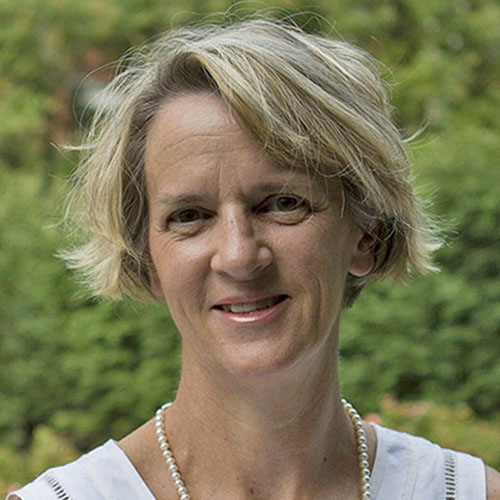Leslie Davis, PhD, RN, NP, FACC: Elevating the Role of the CV Team to Deliver Patient-Centered Care

Efforts to implement coordinated high-quality care for patients with cardiovascular conditions are deeply rooted in having mutual trust, clarity of roles and effective communication among all members of the cardiovascular (CV) team. An essential component of this high-quality care is placing the patient and family in the center of care delivery.
Leslie Davis, PhD, RN, NP, FACC, recognized the importance of placing the patient in the center of care as a nurse in the emergency department (ED) more than 35 years ago, and subsequently built a career focused on the patient's perspective and team interactions to deliver evidence-based care. For her efforts as a nurse scientist, practicing clinician and nursing professor, Davis is being recognized with the ACC's 2021 Distinguished Associate Award, presented during ACC.21.
"Receiving the award is an acknowledgement that the work matters. Much of my work involves women who have heart disease and talking with them about their experiences of having a heart attack. A lot of them think their voice doesn't matter – sharing their voices through my research is an acknowledgement they do matter," Davis says. "I am deeply committed to ensuring the entire CV Team works collaboratively to personalize care for patients. It is important to meet patients where they are in their journey to help them become more engaged in self-care."
Davis is an associate professor of nursing at the University of North Carolina at Chapel Hill, where she conducts original research to improve self-care for adults with cardiovascular conditions, teaches graduate nursing students across programs, and serves as a part-time nurse practitioner (NP) and certified hypertension clinician.
"My work has always stemmed from observations and clinical questions from the bedside," says Davis. "One of the key things I learned early on as a staff nurse in the ED was that women and men have different symptom experiences during heart attacks. At the time, this was not well documented in the literature. It also was not commonplace for a nurse to ask about and study symptom experiences. Fast forward three decades and nurses and other members of the CV Team lead these efforts."
As a graduate student completing her thesis, Davis developed interview techniques to determine how symptoms started and progressed including whether intensity varied over time. Assessing this information is challenging for the nearly one-half of women who experience less discrete symptoms at the start of their acute event. She recalls a turning point as a nurse in the ED when taking a history from a female patient who described the timing of her intermittent heart attack symptoms. The patient connected the timing of her symptoms to activities that she was engaged in at the time – in this case, the steps of baking a pecan pie in preparation for a holiday meal. Research literature now reports on the effectiveness of tying daily activities to the ebbs and flows of symptoms, Davis says.
In the 1990s, as a master's prepared nurse, Davis went on to collaborate with members of the CV Team in her local community hospital to launch quality improvement efforts as part of the National Registry for Myocardial Infarction (NRMI) to improve heart attack care. Dissemination efforts co-authored by team members from the ED and cardiovascular services along with local high school students completing their capstone projects related to cardiovascular care were published in top cardiovascular peer-reviewed journals. These efforts peaked her interest in exploring how to extend these efforts to the prehospital and outpatient settings.
Davis then became a board-certified NP in 2000, first practicing in a heart failure clinic primarily dedicating her time to initiating and titrating guideline-directed medical therapy for patients with reduced ejection fraction. Her NP practice continues today with a focus on delivering personalized education to patients and their families in the general cardiology and hypertension clinic.
As a nurse scientist, since 2011 after earning her PhD, Davis has conducted a series of feasibility studies to inform an education and skill-building intervention to improve women's ability to promptly recognize, interpret and act on heart attack symptoms. This work continues today. This summer Davis is launching a randomized controlled trial testing an online version of her intervention, including a responsive daily symptom diary for women who have recently been hospitalized for a heart attack.
"It takes a team to attend to many aspects of research and clinical care. I have always been team-oriented. Early in my career, I assisted cardiologists in running clinical trials to improve care delivery for patients with cardiovascular conditions. Now a few decades later, nurse-scientists, NPs and other members of the CV Team also are leading innovations to continue that great work." She adds that this is a testimony that it takes a team, and every role has a voice and a responsibility. The role of the CV Team is necessary to generate great ideas – whether for clinical practice or designing the next research study.
"Teamwork and collaboration are appreciated more than ever. And they are clearly recognized by the ACC as one of their Core Values within its current Strategic Plan. I am proud to be a fellow in the ACC to help implement this Vision."
Keywords: ACC Annual Scientific Session, ACC21, ACC Publications, Cardiology Magazine
< Back to Listings

